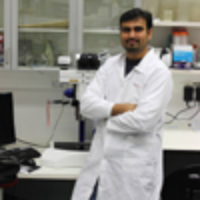Exploring COVID-19: Relating the spike protein to infectivity, pathogenicity and Immunogenicity
Published on: 27th January, 2021
OCLC Number/Unique Identifier: 8906007931
Introduction: SARS-CoV-2 life cycle: The disease which reportedly began in Chinese city Wuhan in November-December 2019 manifesting as severe respiratory illness, soon spread to various parts of the world, and was named COVID-19, and declared a pandemic by WHO. The life cycle of SARS-CoV-2 begins with membrane fusion mediated by Spike (S) protein binding to the ACE2 receptors. Following viral entry and release of genome into the host cell cytoplasm there occurs replication and transcription to generate viral structural and non-structural proteins. Finally, VLPs are produced and the mature virions are released from the host cell.
Immunogenicity of the spike protein: The S protein is considered the main antigenic component among structural proteins of SARS-CoV-2 and responsible for inducing the host immune response. The neutralising antibodies (nAbs) targeting the S protein are produced and may confer a protective immunity against the viral infection. Further, the role of the S protein in infectivity also makes it an important tool for diagnostic antigen-based testing and vaccine development. The S-specific antibodies, memory B and circulating TFH cells are consistently elicited following SARS-CoV-2 infection, and COVID-19 vaccine shots in clinical trials.
The emerging SARS-CoV-2 variants: The early genomic variations in SARS-CoV-2 have gone almost unnoticed having lacked an impact on disease transmission or its clinical course. Some of the recently discovered mutations, however, have impact on transmissibility, infectivity, or immune response. One such mutation is the D614G variant, which has increased in prevalence to currently become the dominant variant world-over. Another, relatively new variant, named VUI-202012/01 or B.1.1.7 has acquired 17 genomic alterations and carries the risk of enhanced infectivity. Further, its potential impact on vaccine efficacy is a worrisome issue.
Conclusion: THE UNMET CHALLENGES: COVID-19 as a disease and SARS-CoV-2 as its causative organism, continue to remain an enigma. While we continue to explore the agent factors, disease transmission dynamics, pathogenesis and clinical spectrum of the disease, and therapeutic modalities, the grievous nature of the disease has led to emergency authorizations for COVID-19 vaccines in various countries. Further, the virus may continue to persist and afflict for years to come, as future course of the disease is linked to certain unknown factors like effects of seasonality on virus transmission and unpredictable nature of immune response to the disease.
Contemplating SARS-CoV-2 infectivity with respect to ABO blood groups
Published on: 26th October, 2021
OCLC Number/Unique Identifier: 9322470952
COVID-19 is a disease that is caused by SARS-CoV-2 and very speedily spreading all over the world. The blood group’s effect on COVID-19 is not clear. The main aim of this article is to determine the relationship between sensitivity of COVID-19 and ABO blood group. For this study we have observed that the individuals with blood group A are at higher risk of getting COVID-19 because they contain the higher concentration of Angiotensin-converting enzyme-2 that provide the site to virus for entry. But in other blood groups the natural Anti A antibodies block the interaction between host receptor and virus and disturb their interaction. Certain studies show that the infectivity and mortality rate in covid patients is not affected by AB blood group system. But according to research, increased ventilator usage, ICU stay was observed in critically ill patients with AB blood group than of other blood groups. O blood group has proved to be protective against SARS-CoV-2 due to the presence of both anti-A and anti-B antibodies as they prevent the binding of the spike protein S of the virus with the ACE2 receptors which are present on the surface of cells. Moreover, furin also plays a major role in penetration of virus in the host cells. Furin is required for the activation of the spike protein S of the virus and due to the low efficiency of furin cleavage in blood group O it is protected from SARS-CoV-2 and other chronic diseases. Mortality rate of covid 19 depends upon the environmental factors, number of people living in the area and also some economic factors. The different strains of COVID-19 effect the different people differently and as the time passes the strain of COVID-19 has changed and thus according to this the mortality rate of different provinces and areas varies due to environmental factors. Pregnant women have no any kind of transportation of covid to their fetuses but mostly patients of blood group A are being affected by COVID-19 and hence their fetuses are somehow effected. And those pregnant women having blood group O does not have any risk of COVID-19 of severe stages.




